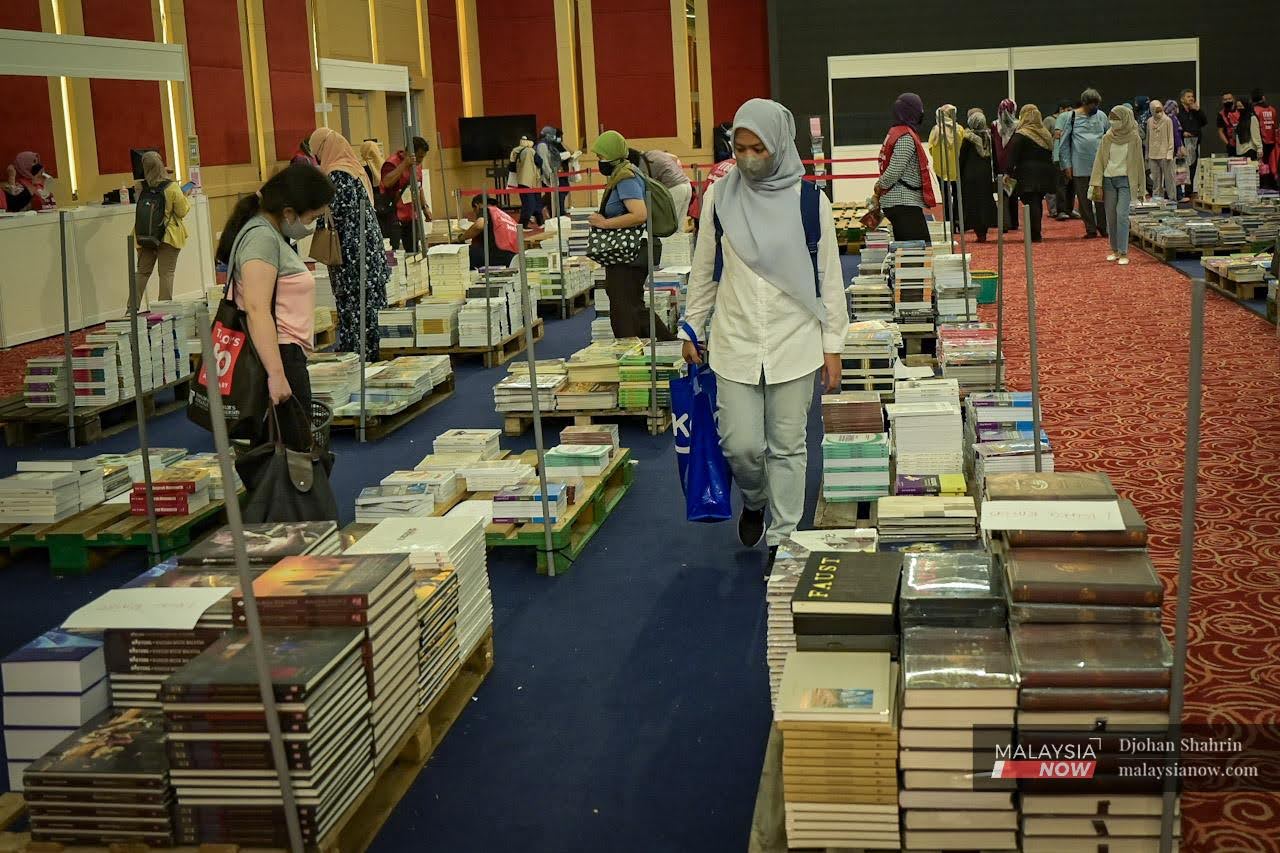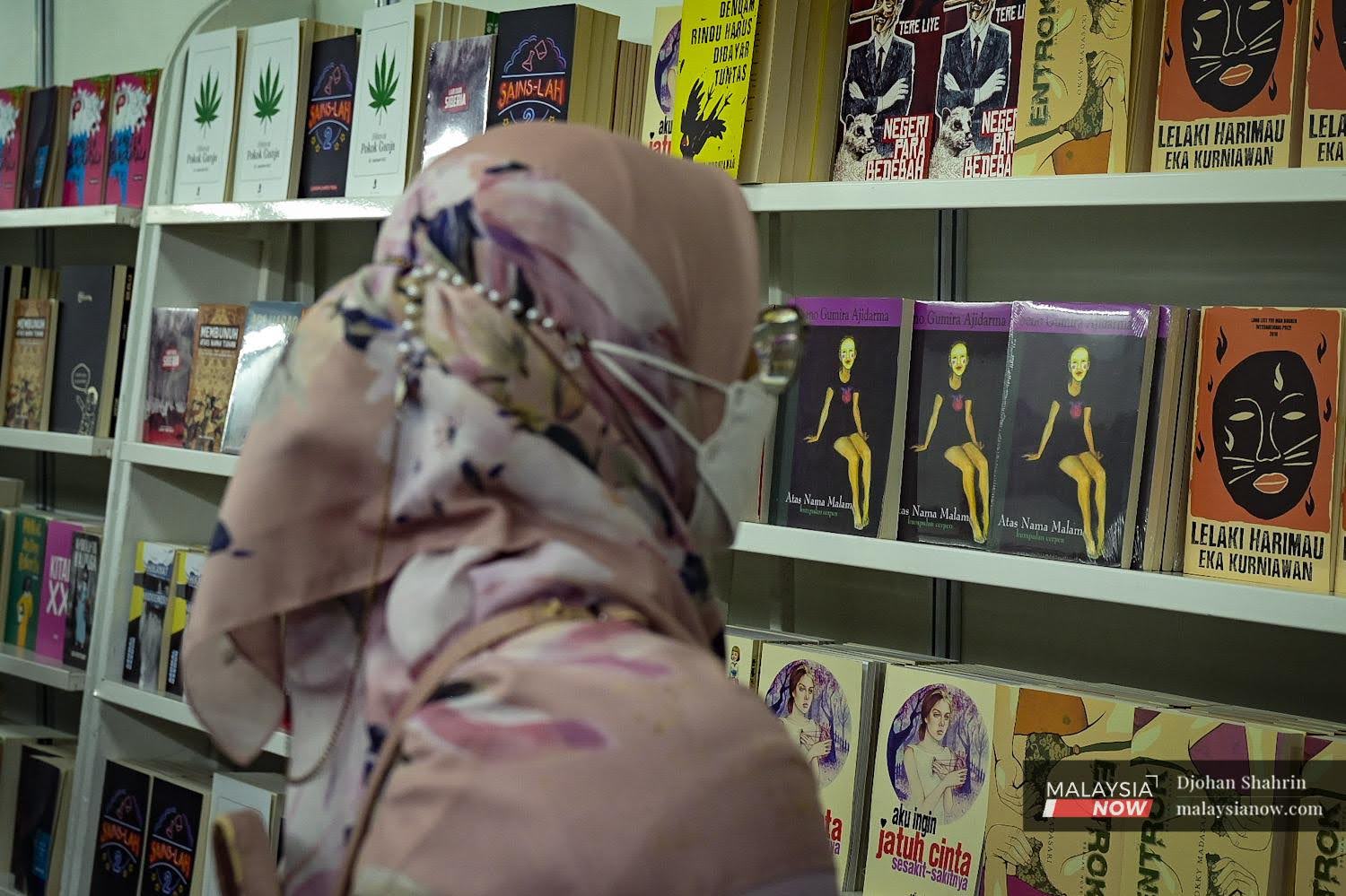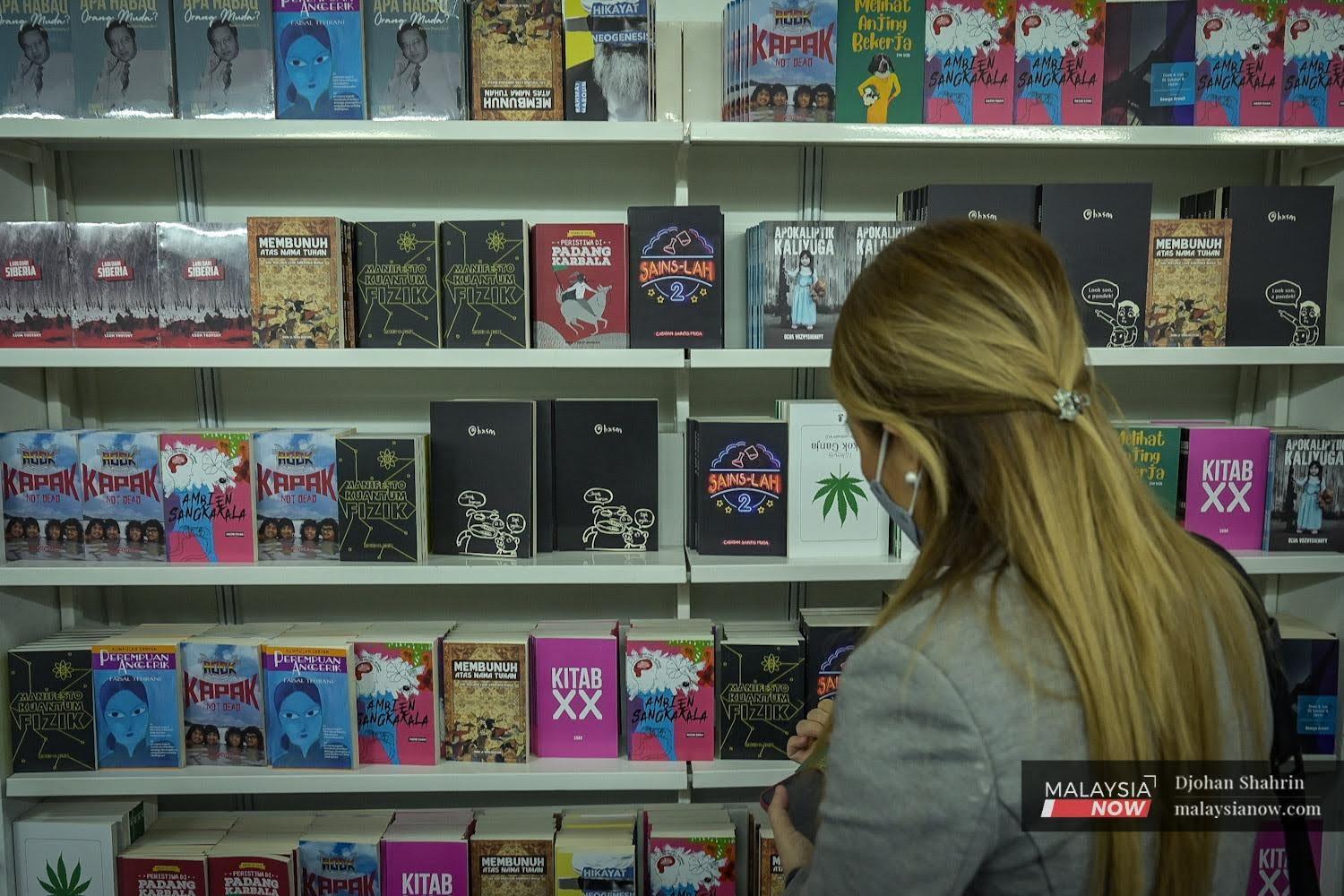International book fairs or Islamic book fairs?
Questions have arisen about the purpose of events such as the Kuala Lumpur International Book Fair, which are supposed to reflect Malaysia's identity as a multicultural society.
Just In
As the shutters come down on one of Malaysia’s biggest book events, questions are swirling about its predominantly Islamic content and the effect that this might have on the country’s efforts to portray itself as a vibrant and multicultural society on the world stage.
The Kuala Lumpur International Book Fair (KLIBF), launched more than 40 years ago in 1981, is organised each year by the education ministry in tandem with the National Book Council of Malaysia and a number of local industry associations.
The 10-day event, which came booming back to life this year after a long break induced by the Covid-19 pandemic, saw thousands flocking to the World Trade Centre in Kuala Lumpur to browse through the publications on display and, with any luck, to bring back new treasures for the shelves at home.
However, a visit to the fair just before its close last weekend found the selection of books dominated by those in the Islamic and religious genre, with almost no international representation and very little to show for the country’s image as a whole.
Even the childrens’ section was overshadowed by this theme, with covers and pamphlets filled with words such as “heaven”, “hell” and “doomsday”.

Also on display were books splashed with conspiracy theory-style titles on issues like Freemasonry and the Illuminati – a favourite with teenagers who, arms filled, queued for metres at the checkout counter.
On social media, questions were raised about the function and objective of the KLIBF, with some suggesting that the organisers change its name to the Kuala Lumpur Islamic Book Fair given its overwhelmingly religious content.
There were very few books in languages other than Malay, with a scattering of titles in English and nothing at all in Mandarin or Tamil.
Malaysia’s image
As of closing day on Sunday, the KLIBF 2022 organising committee estimated that some 1.25 million visitors had come throughout the event.
A total of 137 exhibition booths were opened, and more than 700 were used by publishers, making the KLIBF the largest book and publication event in the country.
But many have questioned the extent to which the event accomplished its objective as an international book fair given the narrow range of titles available.
On the other side of the fence, meanwhile, others say there is nothing wrong with the selection as long as the books are useful and beneficial to readers.

Nurhuda Ramli, a writer who participated in the KLIBF for the first time this year, said the event should belong to all Malaysians instead of only offering books targeted at the Malay community.
She said the organisers should also be imaginative and think about how to make the book fair inclusive and diverse.
Without such efforts, she said, there would be nothing apart from Malay titles at the annual event.
“Even though many of the books are beneficial, there is a clear trend towards religious and conservative books at KLIBF,” she said.
“We have to look at this critically. What is causing the market to be saturated with such titles? Is there really demand just for these books or are the writers out there only those with conservative mindsets?”
International book events like KLIBF are also held in other countries like the UK, Japan and Canada.
The London Book Fair, for example, gives opportunities for book lovers to obtain local works by minority groups as well as progressive and critical volumes that are difficult to find in mainstream shops.
Nurhuda, who published her book “Sanggah Pemula” with Petaling Jaya-based publisher Gerakbudaya, said the KLIBF should be like that.
She said this was why it was important to study market conditions, especially the number of writers in circulation.
“If there are only a few out there, something should be done to encourage the rise of more progressive writers and thinkers,” she said.
Subscribe to our newsletter
To be updated with all the latest news and analyses daily.
